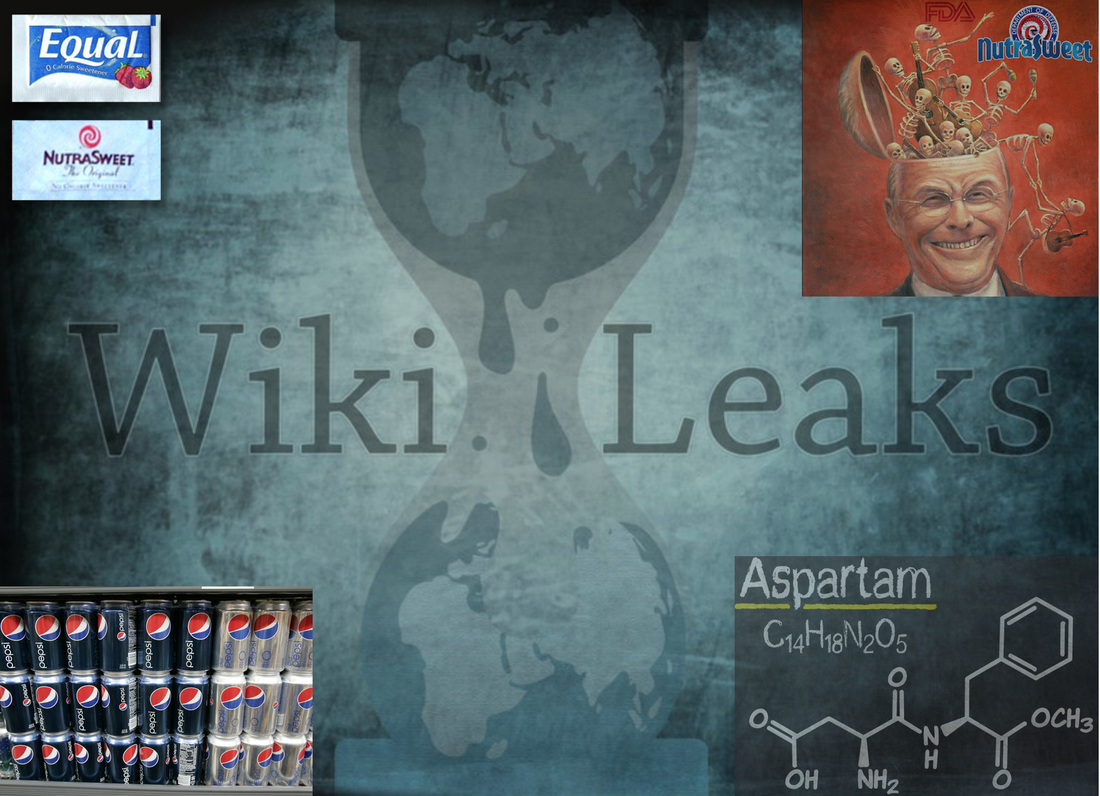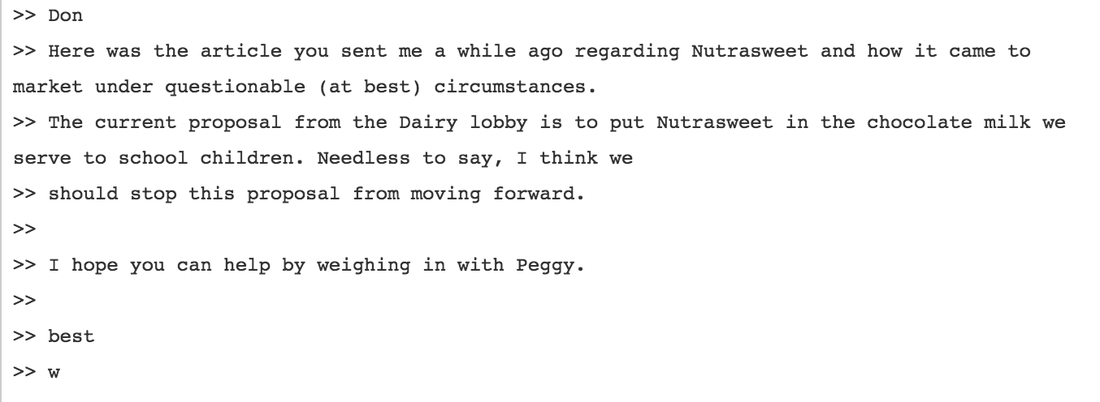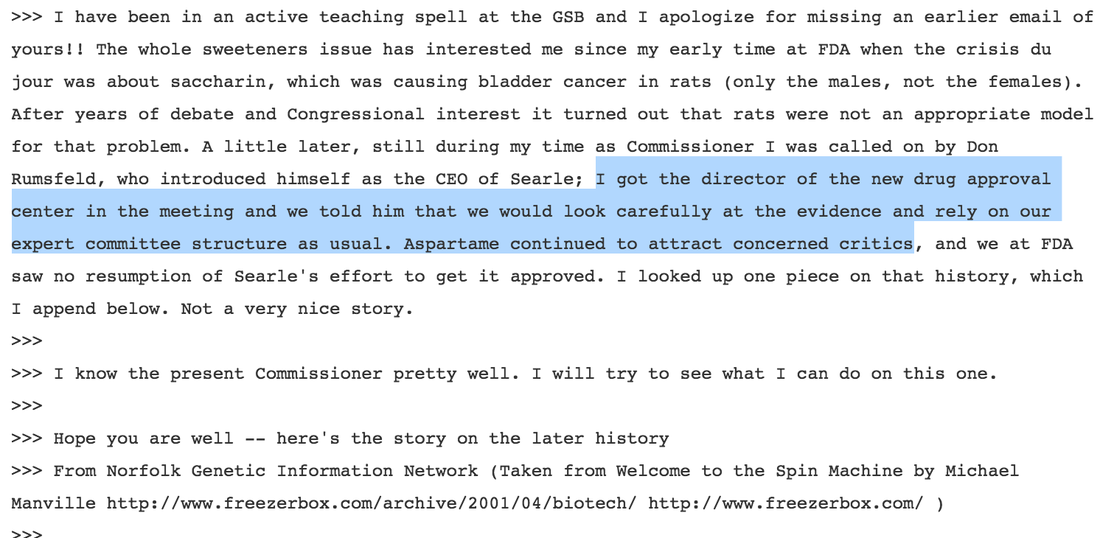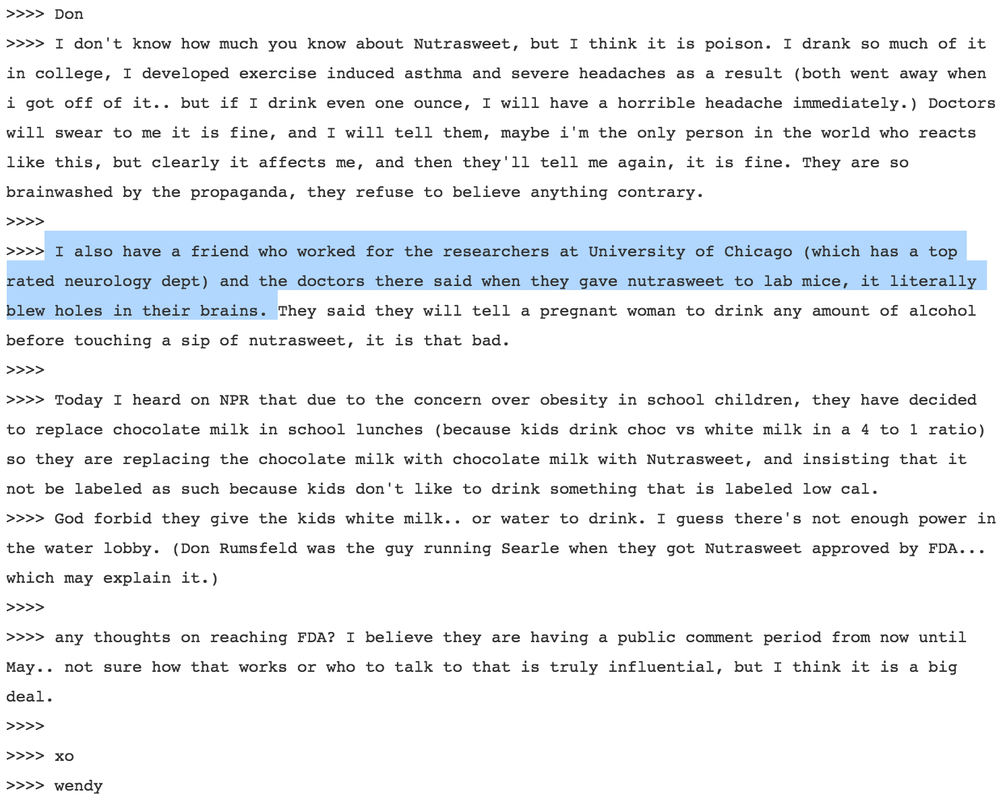People at all levels of society have warned about the dangers of aspartame for years. From its fraudulent approval in 1981 by the US Food and Drug Administration (FDA) to its underhanded dissemination throughout out food supply, the drug has continued to haunt healthy consumers like a toxic whack-a-mole continuing to appear in our food supply. Perhaps the most concise history of aspartame is written by Michael Manville when he states:
"In 1985 Monsanto purchased G.D. Searle, the chemical company that held the patent to aspartame, the active ingredient in Nutra Sweet. Monsanto was apparently untroubled by aspartame's clouded past, including a 1980 FDA Board of Inquiry, comprised of three independent scientists, which confirmed that it "might induce brain tumors." The FDA had actually banned the drug based on this finding, only to have Searle Chairman Donald Rumsfeld vow to "call in his markers," to get it approved. On January 21, 1981, the day after Ronald Reagan's inauguration, Searle re-applied to the FDA for approval to use aspartame in food sweetener, and Reagan's new FDA commissioner, Arthur Hayes Hull, Jr., appointed a 5-person Scientific Commission to review the board of inquiry's decision. It soon became clear that the panel would uphold the ban by a 3-2 decision, but Hull then installed a sixth member on the commission, and the vote became deadlocked. He then broke the tie in aspartame's favor. Hull later left the FDA under allegations of impropriety, served briefly as Provost at New York Medical College, and then took a position with Burston-Marsteller, the chief public relations firm for both Monsanto and GD Searle. Since that time he has never spoken publicly about aspartame."
Back to present day...Wikileaks is on its fifteenth consecutive day of data dumps. The attached images are from a conversation (emails omitted) between former Commissioner of the United States Food and Drug Administration during the Carter Administration Donald Kennedy, American environmental activist and the founder of Cool Globes Wendy Abrams and John Podesta regarding aspartame. The emails reflect a frustrating conversation that many in the health community and those who are conscious about what they put into their body have increasingly expressed over the years. Too often corruption combined with corporate and political nepotism and profits-over-people directives is degrading our health. In the age of information, such willful genetic and environmental damage at the hands of multinational corporations is now being challenged. Since corporations adding aspartame do so in their consumer-facing products, they will always be vulnerable to the boycott. The case study of the growth hormone rBST shows the rapid effect a boycott by consumers had on corporate policy changes. Non-GMO Report writes:
"...two recent events brought the rBST-free trend to a tipping point. First, coffee retailer Starbucks asked all its dairy suppliers to go rBST-free, and then California Dairies, which produces 8% of the milk supplied in the US, asked its 650 members to stop using rBST by August 2007."
The aforementioned tipping point was forced by consumers who boycotted all rBST products causing either weak links or conscious corporations at the time to kill the rBST market by changing their policies. Monsanto-Bayer has learned from their mistakes and have pushed to change the name of aspartame, add it to other products [milk] and keep the chemical from being listed.
"In 1985 Monsanto purchased G.D. Searle, the chemical company that held the patent to aspartame, the active ingredient in Nutra Sweet. Monsanto was apparently untroubled by aspartame's clouded past, including a 1980 FDA Board of Inquiry, comprised of three independent scientists, which confirmed that it "might induce brain tumors." The FDA had actually banned the drug based on this finding, only to have Searle Chairman Donald Rumsfeld vow to "call in his markers," to get it approved. On January 21, 1981, the day after Ronald Reagan's inauguration, Searle re-applied to the FDA for approval to use aspartame in food sweetener, and Reagan's new FDA commissioner, Arthur Hayes Hull, Jr., appointed a 5-person Scientific Commission to review the board of inquiry's decision. It soon became clear that the panel would uphold the ban by a 3-2 decision, but Hull then installed a sixth member on the commission, and the vote became deadlocked. He then broke the tie in aspartame's favor. Hull later left the FDA under allegations of impropriety, served briefly as Provost at New York Medical College, and then took a position with Burston-Marsteller, the chief public relations firm for both Monsanto and GD Searle. Since that time he has never spoken publicly about aspartame."
Back to present day...Wikileaks is on its fifteenth consecutive day of data dumps. The attached images are from a conversation (emails omitted) between former Commissioner of the United States Food and Drug Administration during the Carter Administration Donald Kennedy, American environmental activist and the founder of Cool Globes Wendy Abrams and John Podesta regarding aspartame. The emails reflect a frustrating conversation that many in the health community and those who are conscious about what they put into their body have increasingly expressed over the years. Too often corruption combined with corporate and political nepotism and profits-over-people directives is degrading our health. In the age of information, such willful genetic and environmental damage at the hands of multinational corporations is now being challenged. Since corporations adding aspartame do so in their consumer-facing products, they will always be vulnerable to the boycott. The case study of the growth hormone rBST shows the rapid effect a boycott by consumers had on corporate policy changes. Non-GMO Report writes:
"...two recent events brought the rBST-free trend to a tipping point. First, coffee retailer Starbucks asked all its dairy suppliers to go rBST-free, and then California Dairies, which produces 8% of the milk supplied in the US, asked its 650 members to stop using rBST by August 2007."
The aforementioned tipping point was forced by consumers who boycotted all rBST products causing either weak links or conscious corporations at the time to kill the rBST market by changing their policies. Monsanto-Bayer has learned from their mistakes and have pushed to change the name of aspartame, add it to other products [milk] and keep the chemical from being listed.
Watch Dr. Daivd Jockers expand on the dangers of Aspartame with Ty Bollinger in The Truth About Cancer docu-series.
For an even more in-depth analysis of excototoxins, such as aspartame, and their deleterious effects on brain cells and the neurological system see Dr. Russell Blaylock's presentation below.








 RSS Feed
RSS Feed